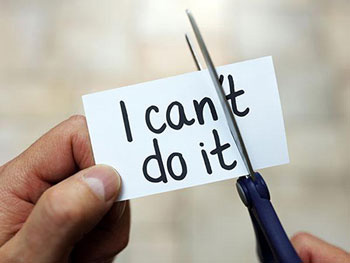Happy New Year! We welcome a fresh start with full bellies and hearts and a renewed dedication to making healthy lifestyles a priority again after the craziness of the holiday season.
Whether you have dreams of buckling down on your finances, getting to bed earlier, or losing holiday pounds, the reality is: goal-setting is something we do often, but tend to be really bad at.
You know what I'm talking about. You make a New Year's resolution to "work out more" only to look back on the last four weeks and realize that you only visited the gym a handful of times. Defeat, shame, and disappointment creep in, and before you know it, all the high hopes and motivation you started out with dwindle to nearly nothing.
If this sounds familiar, then listen up: I've got some tried and true strategies for you. Download our SMART Goals Worksheet to follow along.
As a Registered Dietitian Nutritionist, the core of what I do is to help people change their deep-seated behaviors (especially around eating). So, before formulating your fail-proof goal, ask yourself the following:
- Why is this goal important to me?
- Why do I want to make this goal right now?
- What do I hope to accomplish by making this goal?
If your answers aren't compelling, you should dig deeper to find a goal that ignites a fire in you. The truth is: when your values are clear, making decisions to support them becomes a lot easier!
Once you've honed in on the “why,” it's time to take the next step: write out your goal. This is where many people falter. Here’s a goal I hear often: “I want to eat clean." This is a praiseworthy goal! But it's not setting you up for success. It’s too vague.
The most achievable goals are S.M.A.R.T.
- Specific
- Measurable
- Achievable
- Realistic
- Time Sensitive
Let's break that down.
First, what does "eating clean" mean, and when am I doing it? Let’s get Specific. I want to eat more fruits and vegetables, especially at breakfast since I don’t get any at that meal. Now my goal looks like this: "Eat more fruits and vegetables at breakfast."
Looks pretty good, but I'm still not done. Is my goal Measurable? Not at all. So consider how often (or not) you can engage in your goal. We're thinking about quantity here. I'm going to try to: "Eat one fruit or vegetable at breakfast six days a week."
That’s better, but is my goal Achievable and Realistic? If not, I’m more likely to become discouraged. Well, to be honest, I skip breakfast about two days a week and usually grab pastries with my coworkers one day a week, so I should revise my goal. Now, it's: "Eat one fruit or vegetable at breakfast four days a week." That feels doable!
We've reached the last step: Making the goal Time Sensitive. That means, instead of letting my goal run on infinitely, I'll give it a timeframe to help me evaluate whether or not it's working. For this goal, I'm going to strive to: "Eat one fruit or vegetable at breakfast four days a week for two weeks." At the end of the two-week period, I'll see how I'm doing.
Setting goals is key to achieving healthy lifestyle changes. But you have to be able to reach them! Don't let your great intentions turn into self-sabotage by skipping over the S.M.A.R.T. goal-setting strategy this year.

